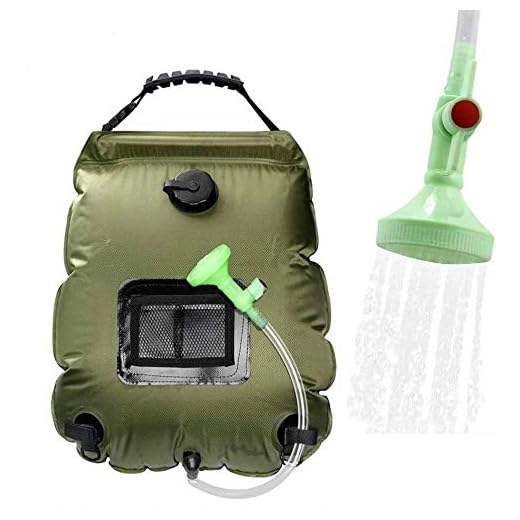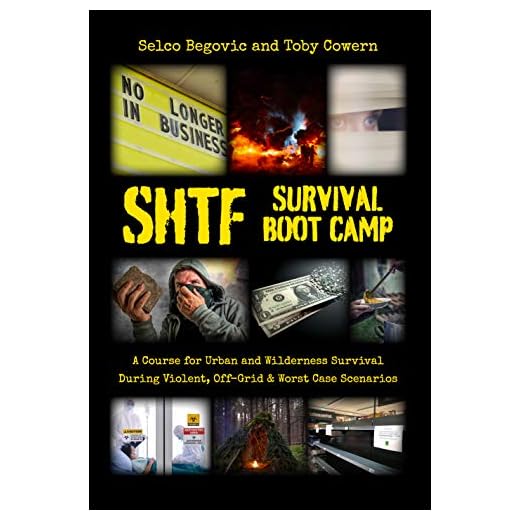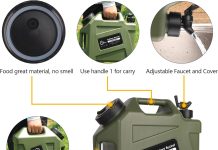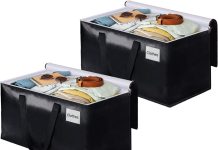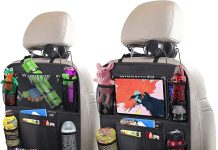Are you craving a serene, adventure-filled escape from the hustle and bustle of everyday life? Look no further than camping off the grid.
This article is your go-to guide for tips and tricks on how to disconnect from the chaos and immerse yourself in the tranquility of nature.
From finding the perfect remote campsite to mastering the art of self-sufficiency, we’ve got you covered. So, pack your bags, leave your worries behind, and prepare for an unforgettable journey into the great outdoors.
Review contents
Choosing the Right Location
When planning a camping trip, one of the most important factors is choosing the correct location. Researching camping spots is the first step in finding the perfect spot to disconnect from it all. Look for campgrounds or backcountry areas known for their natural beauty and peacefulness. Checking out online reviews and recommendations from fellow campers can help narrow your options.
Another critical consideration is accessibility. Think about how far you’re willing to travel and the means of transportation you’ll use. Some camping spots may require a long hike, while others can be easily reached by car. Consider the group’s fitness level and decide on a location that suits everyone’s needs and preferences.
While some campers prefer a more primitive experience, others may want the convenience of amenities. When researching camping spots, consider the facilities available, such as restrooms, showers, and potable water. If you’re planning a more extended trip, having access to these amenities can significantly enhance your comfort and overall experience.
Lastly, consider looking for privacy when choosing a location. If you’re seeking tranquility and solitude, opt for campsites that offer more seclusion. This can be achieved by choosing campgrounds with fewer sites or finding backcountry areas to set up camp away from other campers. Having privacy lets you fully immerse yourself in nature and enjoy a more intimate camping experience.
Preparing the Essentials
Preparing the essentials is crucial to ensure a successful and enjoyable camping trip. One of the first steps is to make a camping checklist. This checklist should include all the items you’ll need during your trip, from camping gear to cooking utensils to personal items. A checklist helps you stay organized and ensures you don’t forget any essential items.
Investing in quality gear is another important aspect of preparing for a camping trip. While it may be tempting to go for cheaper options, investing in high-quality gear will pay off in the long run. Good-quality tents, sleeping bags, and camping stoves are more durable and provide better comfort and performance. Consider the specific needs of your trip and invest in gear that will meet those needs.
Packing lightweight and compact is also essential, especially if you plan hiking or backpacking to your campsite. Choose lightweight gear and equipment that can be easily packed into your backpack. Opt for multi-purpose items whenever possible to save space and reduce the weight of your pack.
Bringing emergency supplies is something that should never be overlooked. While no one wants to think about emergencies, being prepared is vital. Pack a basic first aid kit with band-aids, antiseptic ointment, and pain relievers. Include a flashlight, extra batteries, a whistle, and a multi-tool in your emergency kit. These items can come in handy in unexpected situations and provide peace of mind during your trip.
Ensuring Safety and Comfort
Ensuring safety and comfort during your camping trip is of utmost importance. Checking weather conditions before your trip is essential to prepare appropriately. Be aware of any severe weather warnings and plan your activities accordingly. Dress in layers and bring appropriate gear for weather conditions, such as rain gear or extra warm clothing.
Setting up a safe campsite is also crucial for a comfortable and secure experience. Choose an area that is flat and free of hazards such as dead trees or rocky terrain. Clear any debris or sharp objects from where you plan to set up your tents and sleeping areas. Avoid setting up camp under large trees or near rocky cliffs that may pose a danger in case of wind or falling branches.
Another essential safety measure is establishing a cooking area away from your sleeping area. This helps prevent accidents such as fires and keeps food odors away from your sleeping area, reducing the chances of attracting wildlife. Use designated fire pits or stoves for cooking and follow any fire restrictions. To minimize fire risk, keep a safe distance between your cooking area and tents.
When camping in areas known for wildlife, protecting yourself and your food is crucial. Store all food securely in bear-resistant containers or hang them from a tree away from your campsite. This prevents wildlife from being attracted to your campsite and helps maintain the ecosystem’s natural balance. Remember never to feed wildlife; it can disrupt their natural behaviors and put humans and animals at risk.
Managing Food and Water
Managing food and water during your camping trip is essential for staying nourished and hydrated. Meal planning and prepping beforehand can save time and ensure that you have enough food for your whole trip. Plan meals that are easy to prepare and pack ingredients in separate containers to maximize freshness and minimize the space they take up.
Packing non-perishable foods is crucial in avoiding spoilage and reducing waste. Choose foods that have a longer shelf life and can be easily stored without refrigeration. Canned goods, dried fruits, nuts, and jerky are good options. Remember to pack enough food for your trip and a little extra in emergencies.
Collecting and purifying water is essential for staying hydrated while camping. If you’re camping in a location with a water source, such as a river or lake, make sure to bring a water filtration system or purification tablets. These will help remove any impurities and make the water safe to drink. If there is no water source nearby, bring enough water for your whole trip or plan to collect rainwater if possible.
Storing food securely is essential to prevent wildlife from getting attracted to your campsite. Use bear-resistant containers or hang food from a tree away from your sleeping area. This protects your food help,ps maintain the natural behaviors of wildlife, and keeps them from becoming too accustomed to human presence.
Navigating without Technology
Navigating without technology is a skill that every camper should possess. While GPS devices and smartphones can be helpful, relying on them may not always be feasible. Navigating using a map and compass is an essential skill worth mastering.
Using a map and compass allows you to navigate accurately without relying on technology. Familiarize yourself with reading maps, understanding symbols and contours, and plotting your location using a compass. Practice these skills before your trip and bring the necessary maps and compasses.
Learning basic navigation skills such as finding your bearing, measuring distances, and identifying landmarks is also essential. Navigating effectively allows you to confidently explore your surroundings and venture off the beaten path. Remember that topographical maps are handy for understanding the terrain and planning your route.
Identifying landmarks can help you stay on track and avoid getting lost. Look for unique features such as prominent peaks, rivers, or rock formations that can serve as reference points. This is particularly useful when hiking or backpacking in areas where the trail may not be well-marked.
Disconnecting from electronics
Disconnecting from electronics during your camping trip is a great way to fully immerse yourself in nature and enjoy a break from the digital world. Leave electronic devices behind and embrace the simplicity and tranquility of camping.
Instead of relying on artificial lighting, use alternative lighting sources such as lanterns or campfires. These provide sufficient light and create a cozy and peaceful atmosphere. Experiment with different types of lighting to find the one that suits your needs and preferences.
Embrace nature’s entertainment by engaging in outdoor activities. Take advantage of the natural surroundings by hiking, swimming, fishing, or simply exploring your surroundings. Bring along board games, books, or musical instruments to enjoy during downtime. Connecting with nature and engaging in activities that bring you joy will make your camping trip a memorable experience.
Planning for Waste Management
Proper waste management is essential for maintaining the beauty and cleanliness of the natural environment. Minimize waste by planning and packing items with minimal packaging. Opt for reusable containers, utensils, and cloth napkins instead of single-use items. This not only reduces waste but also saves space in your pack.
Practicing Leave No Trace principles is a crucial aspect of responsible camping. These principles include leaving nature as you found it, disposing of waste properly, and respecting wildlife and other campers. Follow these principles by packing out all trash and leaving your campsite clean and undisturbed.
Properly disposing of trash is crucial to prevent littering and to protect wildlife. Secure garbage bags tightly to prevent animals from accessing the trash. If there are designated trash receptacles at the campsite or trailhead, use them. If not, pack out all trash and dispose of it properly when you return from your trip.
Managing human waste is also an important aspect of waste management. Use designated restrooms if available; otherwise, dig a hole at least six inches deep away from water sources and campsites. Cover the hole with soil and natural materials when you’re done. Remember to pack out all used toilet paper and hygiene products.
Dealing with Emergencies
Being prepared for emergencies is crucial when camping in remote areas. Create a first aid kit that includes band-aids, antiseptic ointment, gauze, pain relievers, and any necessary medication. Familiarize yourself with basic first-aid procedures and consider taking a first aid and CPR course before your trip.
Knowing emergency procedures is essential in case of accidents or unexpected situations. Make sure everyone in your group knows what to do in an an emergency, including how to respond to injuries, notify authorities, and call for help. Establish a communication plan and designate someone to be in charge of communication in emergencies.
Communication methods may vary depending on the location and available resources. In some areas, cell phone reception may be limited or non-existent. Consider bringing a satellite phone or a two-way radio for reliable communication in remote locations. Additionally, please leave a detailed trip plan and itinerary with a trusted person at home so they know where you’re going and when to expect you back.
In case of emergencies, seeking immediate help is essential. If you’re in a remote location and need assistance, know the nearest exit or evacuation route and how to get there. Be prepared to provide clear and detailed information to emergency responders so they can locate you quickly and efficiently.
Connecting with Nature
One of the greatest joys of camping is connecting with nature and appreciating its beauty. Take the time to observe wildlife in their natural habitat, but remember to do so from a safe distance to avoid disturbing or endangering them. Use binoculars or a camera with a zoom lens to get a closer look without getting too close.
Identifying plants and trees is another way to deepen your connection with nature. Bring a field guide or use a smartphone app to help you identify different species. Take the time to learn about the local flora and their ecological significance. This enhances your camping experience and promotes a greater understanding and appreciation for the natural world.
Appreciating natural beauty goes beyond observing wildlife and identifying plants. Sit quietly and soak in the sights, sounds, and smells of your surroundings. Whether watching a sunrise or sunset, listening to the rustling leaves, or breathing in the fresh air, allow yourself to be fully present and appreciative of the wonders of nature.
Participating in nature conservation is a way to give back and ensure that future generations can enjoy the same natural beauty that you’re experiencing. Follow regulations and guidelines set by park authorities and be mindful of your environmental impact. Leave your campsite as you found it, respect wildlife and their habitats, and participate in local conservation efforts.
Respecting Local Regulations
Respecting local regulations is crucial when camping to ensure the preservation of natural resources and the safety of all campers. Understanding camping rules in the area you plan to visit is essential. Familiarize yourself with regulations regarding camping fees, length of stay, and specific rules such as noise restrictions or fire bans.
Obtaining necessary permits is another crucial aspect of respecting local regulations. Some camping areas may require permits or reservations in advance, especially for backcountry camping or popular locations. Check the requirements and obtain the necessary permits before your trip to avoid any legal issues or disappointments.
Obeying fire restrictions is vital for preventing wildfires and preserving the natural environment. Many camping areas have specific regulations regarding open fires, especially during dry seasons. Check for any fire restrictions before your trip and bring alternative cooking methods such as camp stoves or portable grills if necessary.
Respecting quiet hours is a courtesy to fellow campers and wildlife. Many campsites have designated quiet hours during which noise should be minimized. Be mindful of noise levels and avoid disruptive activities during these hours. This ensures a peaceful and enjoyable experience for everyone in the campground.
Camping off the grid is a fantastic way to disconnect from the hustle and bustle of everyday life and immerse yourself in nature.
By choosing the right location, preparing the essentials, ensuring safety and comfort, managing food and water, navigating without technology, disconnecting from electronics, planning for waste management, dealing with emergencies, connecting with nature, and respecting local regulations, you can have a fulfilling and memorable camping trip. So pack your bags, gather your friends, and embark on an adventure in the great outdoors!



